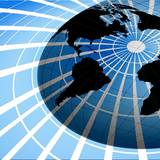Open Access to Scientific Information
Scientific information is both a researcher’s greatest output and technological innovation’s most important resource. UNESCO promotes and supports OA—the online availability of scholarly information to everyone, free of most licensing and copyright barriers—for the benefit of global knowledge flow, innovation and socio-economic development.
At least 10 out of the 17 Sustainable Development Goals (SDGs) comprising the 2030 Agenda for Sustainable Development require constant scientific input. Given that these goals must be achieved globally, there is an absolute need to remove restrictions in order to disseminate research outputs to intended stakeholders. UNESCO thus believes that OA has a fundamental role to support the SDGs and is committed to making OA one of the central supporting agendas to achieve the SDGs.
UNESCO’s OA initiatives are built around the SDGs to recognize the need for ensuring that scientific research addresses the needs of society and responds to current and future sustainability challenges.
UNESCO promotes Open Access (OA)

Open Access logo, originally designed by Public Library of Science
UNESCO promotes Open Access (OA), with particular emphasis on scientific information (journal articles, conference papers and datasets of various kinds) emanating from publicly funded research. Working with partners, UNESCO works to improve awareness about the benefits of OA among policy makers, researchers and knowledge managers. Through its global network of Field Offices, Institutes and Centers, UNESCO facilitates the development and adoption of OA-enabling policies. In addition, UNESCO engages in global OA debates and cooperates with local, regional and global initiatives in support of OA.
UNESCO’s OA programme pays particular attention to African and other developing countries where, notwithstanding important gains in ICT availability, OA prevalence, both in terms of output and usage, remains low.
Open Access benefits researchers, innovators, teachers, students, media professionals and the general public. It promotes global knowledge flow for the benefit of scientific discovery, innovation and socio-economic development.
The Global Open Access Portal
The Global Open Access Portal (GOAP) funded by the Governments of Colombia, Denmark, Norway, and the United States Department of State, presents a current snapshot of the status of Open Access (OA) to scientific information in 158 countries worldwide. For countries that have been more successful in implementing Open Access, the portal highlights critical success factors and aspects of the enabling environment. For countries and regions that are still in the early stages of Open Access development, the portal identifies key players, potential barriers and opportunities.
The Global Open Access Portal is designed to provide necessary information for policy-makers to:
- Learn about the global Open Access environment;
- View their country’s status; and
- Understand where and why Open Access has been most successful.
News
Back to top

